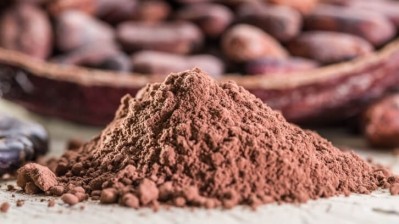FDA will not object to limited health claims regarding cocoa flavanols and cardiovascular disease

In a Feb. 1 letter of enforcement discretion announced Feb. 3, FDA responded to a health claim petition from Barry Callebaut representatives and said the agency will not object to a number of specific claims “provided that the qualified claim is appropriately worded so as not to mislead consumers and that other factors for the use of the claim are met.”
Barry Callebaut’s 2018 petition requested a wider range of claims, but FDA found evidence fell short of demonstrating a relationship between intake of cocoa flavanols in high flavanol semi-sweet/dark chocolate and risk reduction of CVD.
“Credible studies that specifically evaluate the relationship between the consumption of cocoa flavanols in high flavanol semi-sweet/dark chocolate and risk reduction of CVD are necessary to draw conclusions,” the agency said.
From FDA’s point of view, that data is of particular importance given that semi-sweet/dark chocolate contains more calories, total fat and saturated fat compared with cocoa powder, “which could influence the effects on CVD risk.”
However, FDA did see limited evidence regarding cocoa flavanols in high flavanol cocoa powder and risk of CVD in two publications.
While the agency pointed out shortcomings with those studies, specifically moderate methodological quality, small number of subjects, short duration and lack of replication, it will permit limited claims associated with those study results.
Qualifying language must be included in those claims, “to convey the limits on the strength of the scientific evidence supporting the relationship,” FDA explained.
Truthful descriptions necessary
For cocoa flavanols in high flavanol cocoa powder and risk reduction of CVD, the agency will consider exercising enforcement discretion for qualified health claims on product labels or labeling for truthful, non-misleading descriptions that convey the limitations of the scientific evidence at hand.
“Such a description is truthful and not misleading because, while the evidence provides support for the claimed relationship, the evidence is very limited,” FDA said.
FDA lists the specific claims eligible for enforcement discretion:
- "Cocoa flavanols in high flavanol cocoa powder may reduce the risk of cardiovascular disease, although the FDA has concluded that there is very limited scientific evidence for this claim.”
- “Cocoa flavanols in high flavanol cocoa powder may reduce the risk of cardiovascular disease. The FDA has concluded that there is very limited scientific evidence for this claim.”
- “Very limited scientific evidence suggests that consuming cocoa flavanols in high flavanol cocoa powder, which contains at least 4% of naturally conserved cocoa flavanols, may reduce the risk of cardiovascular disease.”
- “Very limited scientific evidence suggests that consuming cocoa flavanols in high flavanol cocoa powder, which contains at least 4% of naturally conserved cocoa flavanols, may reduce the risk of cardiovascular disease. This product contains at least 4% of naturally conserved cocoa flavanols. See nutrition information for_____ and other nutrients.”
The claims are only applicable to cocoa flavanols in high flavanol cocoa powder and foods that contain high flavanol cocoa powder, and do not apply to regular cocoa powder, foods that contain regular cocoa powder or other food products made from cacao beans such as chocolate.
Cocoa powder and semi-sweet/dark chocolate are made from cacao beans from cacao trees, while flavanols are a natural component of cacao beans.
“Flavanol content of cacao products is dependent upon the cultivar, origin, agricultural practices, and postharvest practices and processing,” FDA explained.
Additional considerations
In its letter to Barry Callebaut, FDA noted that it generally requires foods making CVD-related health claims to also be low in fat, saturated fat and cholesterol.
Using the Reference Amount Customarily Consumed of one tablespoon or 5 - 6 grams, FDA affirmed that cocoa powder meets the definition of “low fat,” “low saturated fat,” and “low cholesterol.”
However, the agency pointed out that foods containing high flavanol cocoa powder are expected to also meet those “low fat,” “low saturated fat,” and “low cholesterol” definitions in order to utilize the claims.
“Certain types of foods that may include high flavanol cocoa powder, especially bakery products, often have levels of total fat, saturated fat, and cholesterol that disqualify them from being low fat, low saturated fat, and low cholesterol foods,” FDA noted.
In addition, FDA points out that cocoa flavanols must be used in large enough quantities in products to justify CVD claims. That kind of a stopgap “will help ensure that consumers do not see the claim on products that contain so little of the substance that such products would be very unlikely to provide any health benefit.”
Utilizing data submitted with the petition and information from studies, FDA determined that to use the qualified health claims regarding the relationship between high flavanol cocoa powder and CVD risk reduction, the high flavanol cocoa powder must have at least 4% of naturally conserved cocoa flavanols and contain at least 200mg cocoa flavanols per RACC.














